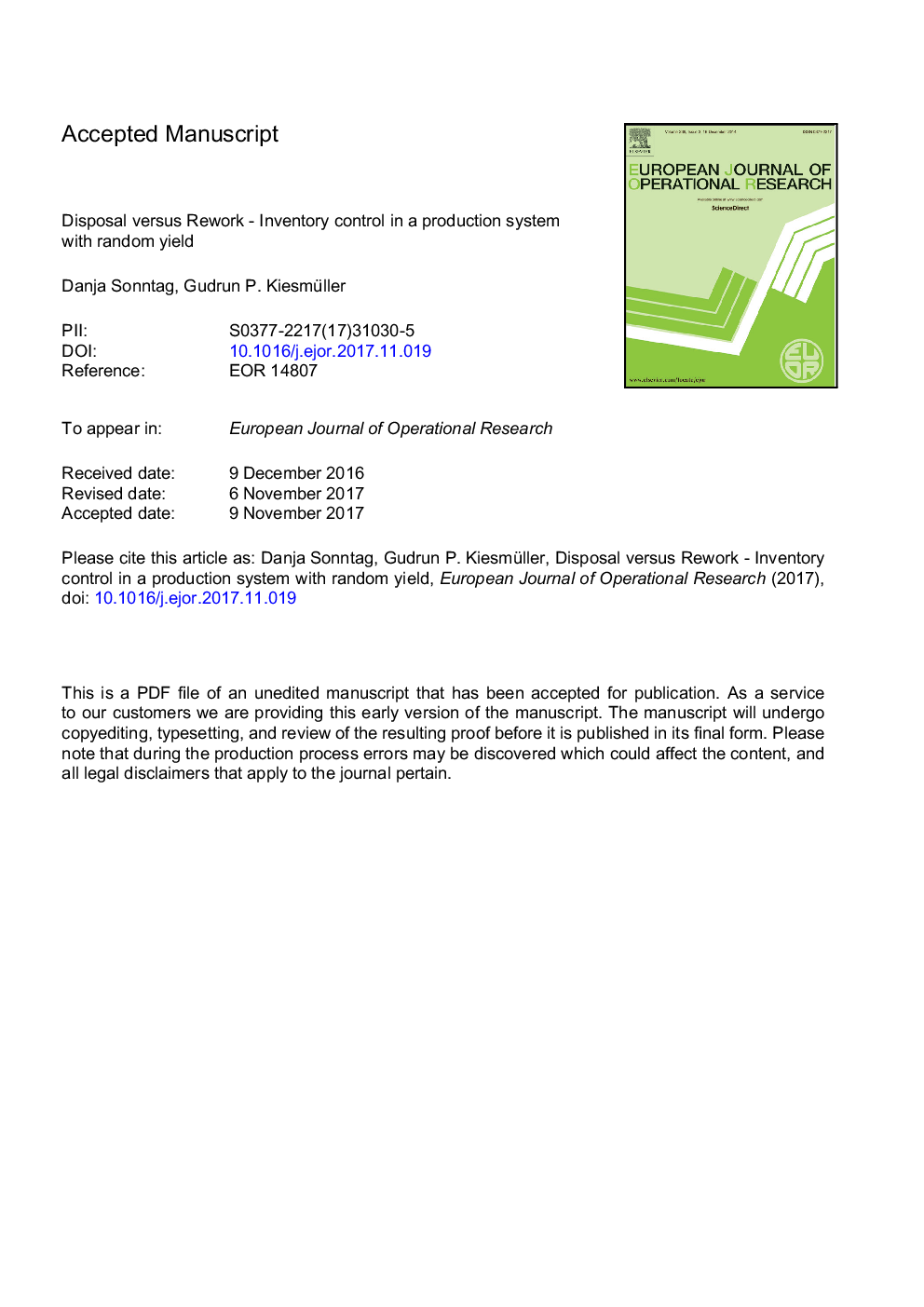| Article ID | Journal | Published Year | Pages | File Type |
|---|---|---|---|---|
| 6895047 | European Journal of Operational Research | 2018 | 30 Pages |
Abstract
In a production environment where random yield plays a fairly significant role, a decision has to be made on how to handle products that do not satisfy given quality requirements. We consider a single-stage production system with a positive production time and random yield. To ensure that only high quality items are sold to the customer, a post-production quality control system has been put in place. We compare two different strategies for defective items: disposal or rework. Disposal is possible without any time delay whereas the rework process requires a positive rework time. While disposed-of items leave the production process, reworked products stay in the process and are assumed to be as good as products that are perfect when they are initially produced. The end products are stored in a warehouse to satisfy stochastic demand. We show how to determine the optimal base-stock level, which is very difficult because of unknown covariances between orders. Subsequently, an optimization model is proposed to support the planner's decision on which strategy to choose when it comes to whether to dispose of or rework defective items. By means of a sensitivity analysis we show which parameters directly affect this decision and give managerial insights. The analysis indicates that significant cost reductions can be obtained by choosing the best strategy for defective products.
Related Topics
Physical Sciences and Engineering
Computer Science
Computer Science (General)
Authors
Danja Sonntag, Gudrun P. Kiesmüller,
